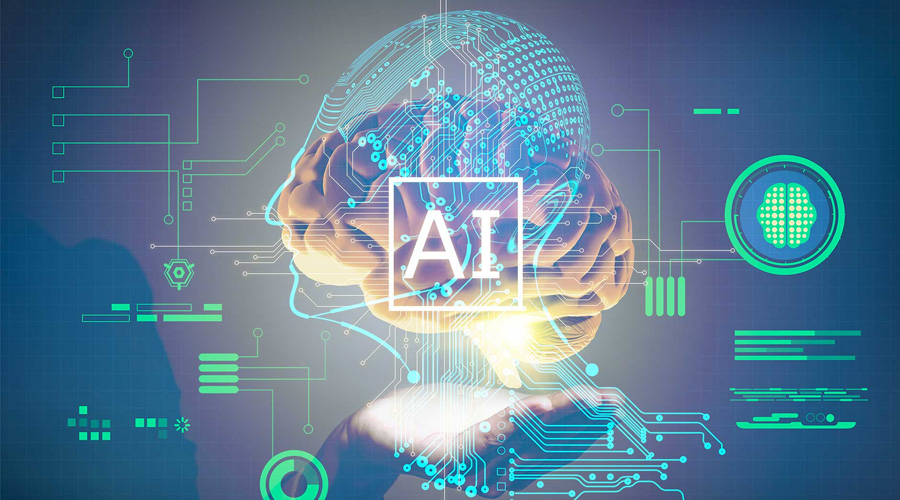Introduction:
Artificial Intelligence (AI) has emerged as a transformative technology that is reshaping various industries and revolutionizing the way businesses operate. From improving efficiency and productivity to enhancing customer experiences, AI development services are driving innovation across sectors. In this blog, we will explore the latest trends in AI adoption, the challenges faced by businesses in implementing AI, and the promising future prospects it holds for various industries.
Trends in AI Adoption:
1.1 Machine Learning and Predictive Analytics:
Machine learning algorithms have become a cornerstone of AI development, enabling systems to learn from data and improve performance over time. Predictive analytics, a subset of machine learning, helps businesses make informed decisions by analyzing historical data to forecast future trends and outcomes. This trend is widespread across industries, such as finance, healthcare, marketing, and retail, where data-driven insights are crucial for success.
1.2 Natural Language Processing (NLP):
NLP is another vital aspect of AI that enables machines to understand and interpret human language. The integration of NLP in customer service chatbots, virtual assistants, and sentiment analysis tools has significantly improved customer interactions and feedback analysis. As NLP technology advances, businesses are incorporating it into their processes to enhance communication and decision-making.
1.3 Computer Vision:
Computer vision involves training machines to interpret and understand visual information from images and videos. Industries like manufacturing, healthcare, and autonomous vehicles rely on computer vision for quality control, medical imaging, and object recognition tasks. The growing accuracy of computer vision models is unlocking innovative applications in diverse sectors.
1.4 Robotic Process Automation (RPA):
RPA involves automating repetitive and rule-based tasks using software robots, freeing up human resources for more complex and creative tasks. This trend has gained popularity in industries like finance, human resources, and logistics, leading to increased efficiency and cost savings.
AI Trends in Industries:
1. Healthcare:
AI has a profound impact on the healthcare sector, improving patient care, diagnostics, and research.
a. Medical Imaging: AI-powered image analysis assists in accurate diagnosis by detecting anomalies and identifying patterns in medical images like X-rays, MRIs, and CT scans.
b. Drug Discovery: AI algorithms help identify potential drug candidates by analyzing vast chemical databases and predicting their efficacy.
c. Personalized Medicine: AI-driven predictive analytics enable personalized treatment plans based on a patient’s genetic makeup and medical history.
2. Finance:
The financial industry is leveraging AI to enhance efficiency, risk management, and customer experience.
a. Fraud Detection: AI models detect fraudulent activities in real-time, minimizing losses and ensuring secure transactions.
b. Algorithmic Trading: AI-driven trading systems analyze market data and execute trades at optimal times, optimizing investment strategies.
c. Customer Service: AI-powered chatbots and virtual assistants provide seamless customer support, addressing queries and resolving issues promptly.
3. Manufacturing:
AI is transforming the manufacturing sector through automation and predictive maintenance.
a. Robotics and Automation: AI-powered robots enhance production efficiency, reduce errors, and handle repetitive tasks on assembly lines.
b. Predictive Maintenance: AI algorithms analyze machine data to predict maintenance requirements, reducing downtime and increasing productivity.
c. Quality Control: AI-powered systems inspect products during manufacturing, ensuring high-quality standards and minimizing defects.
4. Retail:
AI is reshaping the retail landscape by providing personalized shopping experiences and optimizing supply chain management.
a. Recommendation Systems: AI-driven recommendation engines suggest products based on customer preferences and behavior.
b. Inventory Management: AI analytics optimize inventory levels, reducing excess stock and ensuring products are readily available.
c. Customer Insights: AI-powered data analysis provides valuable insights into consumer behavior and trends, enabling targeted marketing strategies.
Challenges in Implementing AI:
2.1 Data Quality and Availability:
One of the primary challenges faced by businesses is obtaining high-quality and relevant data for AI training. Data that is inaccurate, incomplete, or biased can lead to unreliable AI models. Additionally, acquiring sufficient data in certain industries, such as healthcare, may be challenging due to privacy regulations and security concerns.
2.2 Lack of AI Expertise:
Implementing AI requires a skilled workforce with expertise in data science, machine learning, and AI development. However, there is a shortage of AI talent, making it difficult for some businesses to effectively leverage AI’s capabilities. Collaborations with AI development service providers and educational institutions can help bridge this skills gap.
2.3 Ethical and Legal Concerns:
AI applications often raise ethical dilemmas, such as bias in decision-making algorithms or the potential for AI to replace human jobs. Businesses must navigate these ethical considerations while ensuring compliance with existing legal frameworks and regulations.
2.4 Integration with Existing Systems:
Integrating AI solutions with existing infrastructures can be complex and time-consuming. Legacy systems might not be compatible with AI technologies, requiring significant updates or replacements to accommodate AI advancements.
Future Prospects for Businesses:
3.1 Enhanced Customer Experience:
AI’s ability to process vast amounts of data in real-time enables businesses to deliver personalized experiences to their customers. From recommendation engines in e-commerce to AI-powered chatbots in customer service, businesses can build stronger relationships with their customers and increase loyalty.
3.2 Improved Decision Making:
By harnessing the power of predictive analytics and machine learning, businesses can make data-driven decisions. AI-powered insights enable leaders to identify trends, forecast market changes, and respond proactively to challenges, enhancing their overall competitiveness.
3.3 Increased Efficiency and Automation:
As AI continues to evolve, automation will become more sophisticated, streamlining operations and reducing costs. Businesses can deploy AI-powered robots and systems to perform repetitive tasks with greater speed and accuracy, optimizing workflows and resource allocation.
3.4 Healthcare Advancements:
In the healthcare industry, AI is poised to make significant advancements. From medical imaging analysis to drug discovery and personalized treatment plans, AI has the potential to transform patient care and outcomes.
3.5 Autonomous Vehicles and Transportation:
The future of transportation is intertwined with AI-driven technologies. Autonomous vehicles are becoming a reality, and AI-powered traffic management systems promise to revolutionize transportation efficiency and safety.
Read More: https://blogozilla.com/how-to-choose-the-right-software-development-outsourcing-partner/
AI in Automation
AI in industries, specifically in the transportation sector, is transforming profoundly. It enables advancements in autonomous vehicles, route optimization, and traffic management. Self-driving cars, powered by AI technologies such as Computer Vision & Machine Learning, hold the promise of safer and more efficient transportation systems, reducing accidents and congestion.
Conclusion:
AI has become a driving force across industries, shaping the way businesses operate, innovate, and serve their customers. As the adoption of AI continues to grow, businesses must address challenges such as data quality, AI expertise, ethics, and system integration. By doing so, they can unlock the full potential of AI and reap its benefits, including enhanced customer experiences, data-driven decision-making, increased efficiency, and groundbreaking advancements in various fields. Embracing AI is no longer a choice; it is a necessity for businesses aiming to stay competitive in an increasingly AI-driven world.



